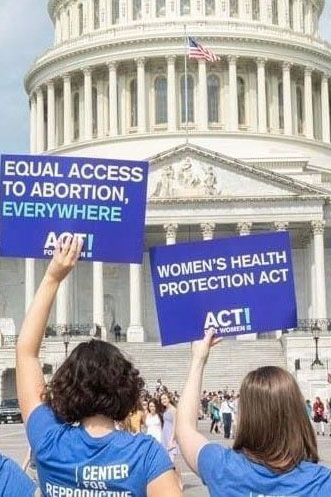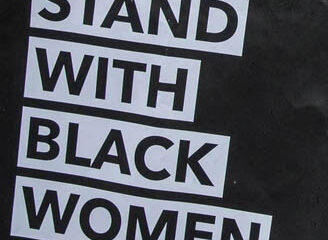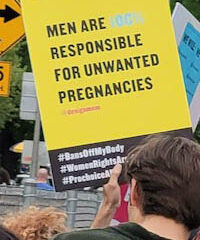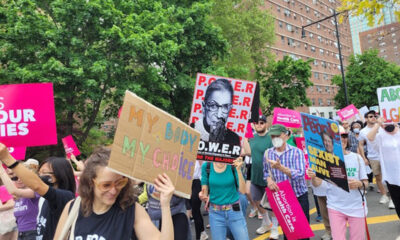Justice Matters
The Women’s Health Protection Act (WHPA)
Federal Legislation to Protect the Right to Access Abortion Care

On February 28, 2022, the U.S. Senate voted on the Women’s Health Protection Act (WHPA) in the first-ever Senate vote on proactive legislation to enshrine the right to abortion in federal law. The bill—which is supported by a majority of voters in the U.S and was passed by the U.S. House in a historic vote in September—did not receive the 60 votes needed to overcome the filibuster.
If enacted, WHPA would protect abortion access nationwide by creating a statutory right for health care providers to provide, and a corresponding right for their patients to receive, abortion care—free from restrictions and bans.
Below are excerpts from the House debate before it passed WHPA:
Summary
Equal access to abortion care is essential for social and economic equality, reproductive autonomy, and the right to determine our own lives. But, in many places, accessing abortion care is extremely difficult, and for many people nearly impossible, because of state-level laws that restrict and ban access to abortion.
The Women’s Health Protection Act (WHPA) is federal legislation that creates a new legal protection for the right to provide and access abortion care, free from medically unnecessary restrictions and bans on abortion, including forced waiting periods, biased counseling, and pre-viability bans like the one in Texas.
What does the Women’s Health Protection Act do?
WHPA establishes a statutory right for health care professionals to provide abortion care and the right for their patients to receive care, free from medically unnecessary restrictions that single out abortion care.
Why is WHPA needed now?
Politicians have passed nearly 500 state laws restricting abortion access over the past decade. These restrictions have eliminated access to abortion care in large swaths of the United States. Nearly 90 percent of U.S. counties are without a single abortion provider and five states are down to their last clinic. The people hurt most by abortion restrictions are those who already face barriers to accessing health care—including Black, Indigenous and People of Color (BIPOC), women, those working to make ends meet, members of the LGBTQI+ community, immigrants, young people, those living in rural communities, and people with disabilities.
Does WHPA have support in Congress?
Yes, the Women’s Health Protection Act has strong support in Congress. WHPA was reintroduced in the 117th Congress by lead sponsors Representatives Judy Chu (D-CA), Lois Frankel (D-FL), Ayanna Pressley (D-MA), and Veronica Escobar (D-TX) and Senators Richard Blumenthal (D-CT) and Tammy Baldwin (D-WI). The bill was introduced on June 8, 2021 with 176 original co-sponsors in the House and 48 supporters in the Senate, record-high support for the bill at introduction.
The Center for Reproductive Rights has actively supported WHPA since its first introduction in 2013. In February 2020, Center president and CEO Nancy Northup testified before Congress in support of the bill, stating: “The Women’s Health Protection Act protects the provision of and access to essential reproductive health care and the constitutional rights of all people, no matter where they happen to live.”
Taking action to support WHPA
The Center for Reproductive Rights is spearheading a national campaign to pass the Women’s Health Protection Act. Visit the campaign’s website to learn more and find out how you can join in the effort to make WHPA the law of the land. Also, call your Senator to support WHPA.














